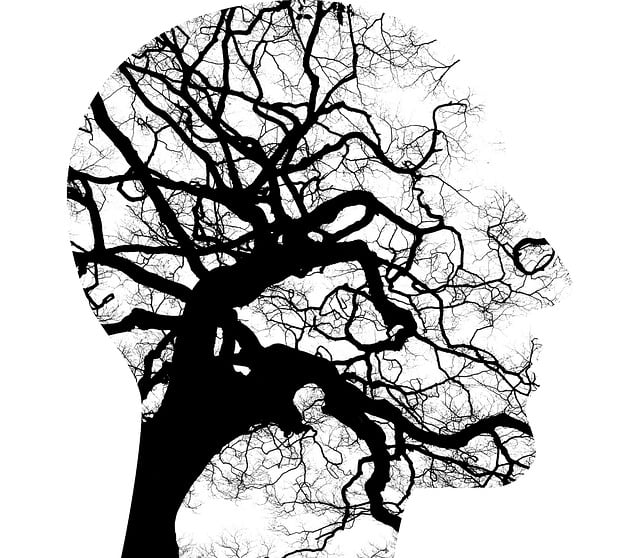Community outreach programs like Lone Tree Terminal Illness Therapy (LTTI) play a vital role in supporting individuals with terminal illnesses by offering tailored strategies such as group therapy and mental wellness journaling. LTTI's holistic approach, integrating self-care practices and emotional well-being promotion, significantly improves patients' quality of life. Engaging the community through accessible communication methods, support groups, and partnerships fosters open dialogue and positive thinking, leading to better mental wellness outcomes. Measuring program success through KPIs like participation rates, recipient satisfaction, and improved coping skills demonstrates their effectiveness, with long-term benefits evident in follow-up surveys and behavioral changes.
Community outreach programs play a vital role in extending support networks to those facing terminal illnesses. This article explores strategies for implementing impactful initiatives, focusing on the successful model employed by Lone Tree’s local healthcare efforts. We delve into developing tailored therapy programs for end-of-life care and effective engagement tactics. Additionally, we discuss measuring the long-term impact of these programs, emphasizing the importance of understanding community needs to enhance terminal illness support through innovative approaches, such as Lone Tree Terminal Illness Therapy.
- Understanding Community Outreach for Terminal Illness Support
- The Role of Lone Tree in Local Healthcare Initiatives
- Developing an Effective Therapy Program for End-of-Life Care
- Engaging the Community: Strategies and Best Practices
- Measuring Success and Long-Term Impact of Outreach Programs
Understanding Community Outreach for Terminal Illness Support

Community outreach programs play a pivotal role in extending support to individuals facing terminal illnesses. Lone Tree Terminal Illness Therapy, for instance, focuses on creating a network of empathy and understanding within communities. By implementing tailored strategies, such as group therapy sessions and mental wellness journaling exercises, these initiatives aim to alleviate the emotional burden borne by patients and their families.
One effective approach is incorporating empathy-building strategies that foster deeper connections among community members. Such programs can help break down barriers and create a supportive environment where individuals feel heard and understood. Additionally, they offer guidance on coping mechanisms, promoting self-care, and preventing burnout—essential aspects of maintaining mental wellness during challenging times.
The Role of Lone Tree in Local Healthcare Initiatives

Lone Tree plays a pivotal role in enhancing local healthcare initiatives, particularly when it comes to addressing terminal illness therapy. The community’s commitment to supporting individuals facing life-limiting conditions is evident through various programs and services. One notable effort is the Lone Tree Terminal Illness Therapy (LTTI) program, designed to offer compassionate care and Crisis Intervention Guidance for patients and their families. This initiative not only provides emotional support but also equips participants with effective Stress Reduction Methods and Mood Management techniques to navigate challenging circumstances.
The LTTI program exemplifies how community outreach can make a profound difference in healthcare. By fostering open conversations about terminal illness, the initiative promotes better preparation and peace of mind for those facing these difficulties. Through its holistic approach, Lone Tree ensures that individuals not only receive medical assistance but also access valuable resources for mental and emotional well-being, ultimately enhancing their quality of life during trying times.
Developing an Effective Therapy Program for End-of-Life Care

In developing an effective therapy program for end-of-life care at Lone Tree Terminal Illness Therapy, a holistic approach is essential. This involves integrating various self-care practices and emotional well-being promotion techniques to support individuals navigating their final journey. The program should cater to the unique needs of each patient, fostering open conversations about emotions and providing tools for emotional intelligence. Through compassionate listening and tailored interventions, the therapy can help patients find peace and dignity during this challenging period.
Emotional intelligence is a cornerstone in such initiatives, enabling healthcare providers to offer profound support. By teaching patients and their families effective coping mechanisms and enhancing communication skills, the program contributes to maintaining or improving quality of life. This comprehensive approach ensures that everyone involved receives the necessary tools to navigate the complexities of terminal illness with greater resilience and emotional well-being.
Engaging the Community: Strategies and Best Practices

Engaging the community is a vital step in implementing successful outreach programs, such as Lone Tree Terminal Illness Therapy initiatives. Effective strategies involve fostering open dialogue and building strong connections with residents. One key approach is to utilize Communication Strategies that are inclusive and accessible. This can include hosting community forums, utilizing social media platforms, and partnering with local organizations to spread awareness and address concerns openly. Encouraging Positive Thinking through shared experiences and support groups can significantly contribute to the mental wellness of individuals within the community.
Best practices emphasize the importance of tailoring outreach efforts to meet the unique needs and preferences of the community. By incorporating feedback from residents and adapting programs accordingly, organizations like Lone Tree Terminal Illness Therapy can ensure their initiatives resonate deeply. Fostering a sense of belonging and empowerment through collaborative Mental Wellness programs has been shown to lead to more positive outcomes for all involved.
Measuring Success and Long-Term Impact of Outreach Programs

Measuring the success and long-term impact of community outreach programs, such as those provided by Lone Tree Terminal Illness Therapy, is paramount for understanding their effectiveness. By implementing key performance indicators (KPIs), organizations can assess how well their initiatives are reaching and benefiting target populations. These metrics could include participation rates, satisfaction levels among program recipients, and improvements in coping skills development or burnout prevention.
Over time, successful outreach programs should demonstrate increased inner strength development and enhanced overall well-being among participants. This long-term impact can be gauged through follow-up surveys, community feedback, and observation of sustained behavioral changes. Such evaluations not only provide valuable insights for refining existing programs but also serve as a compelling testament to the positive effects of dedicated community outreach efforts.
Community outreach programs, such as those implemented by organizations like Lone Tree, play a pivotal role in providing terminal illness therapy and support. By understanding community needs, engaging local healthcare initiatives, and employing effective strategies, these programs can significantly enhance end-of-life care. Measuring their success over the long term ensures these initiatives continue to make a lasting impact on both patients and their families. The implementation of well-structured outreach programs, including Lone Tree Terminal Illness Therapy, is a vital step towards fostering supportive communities that embrace life’s delicate moments.










